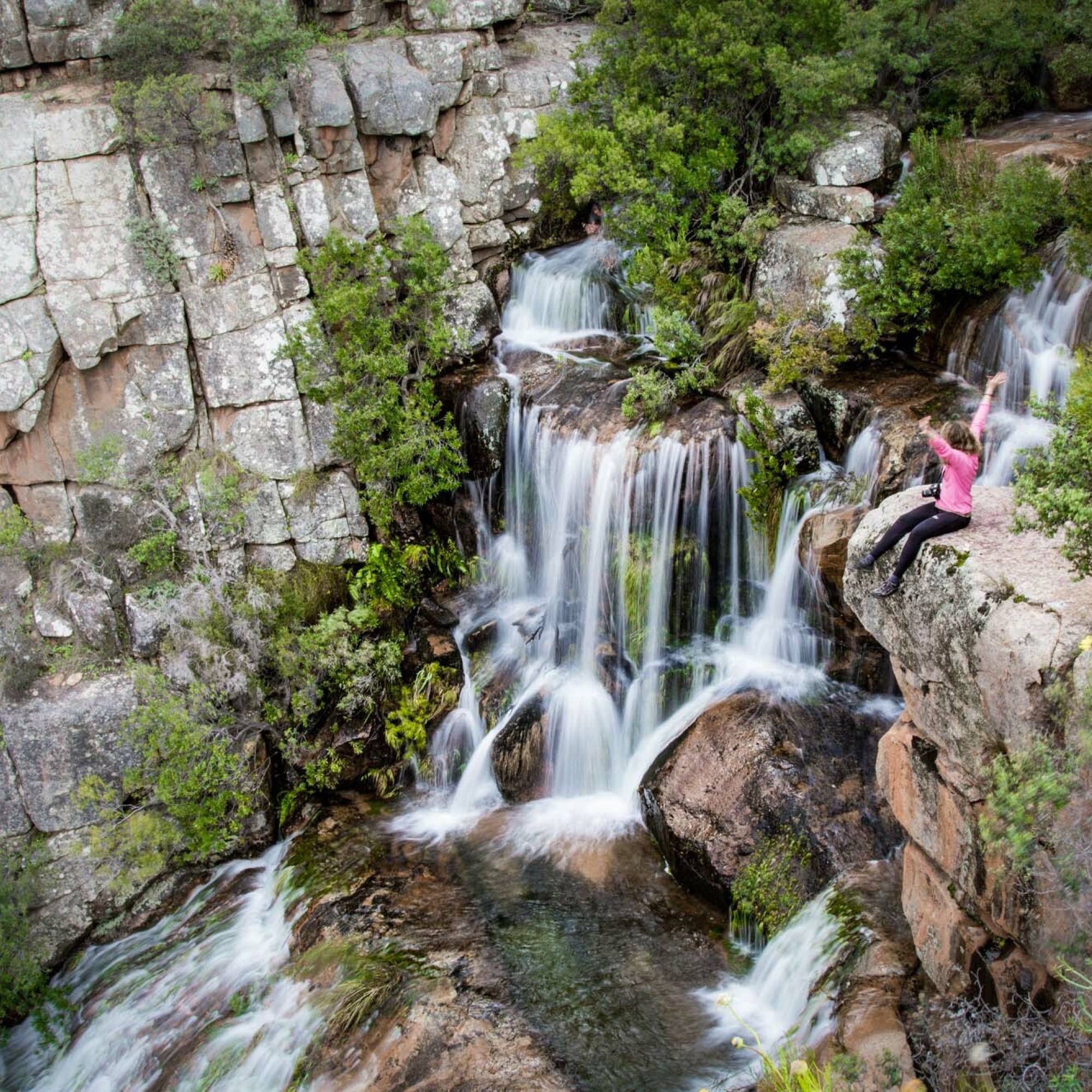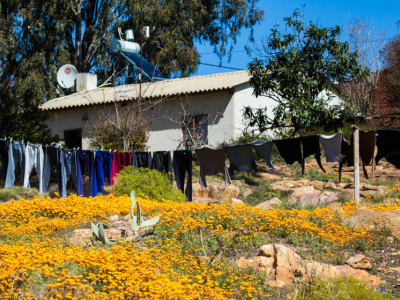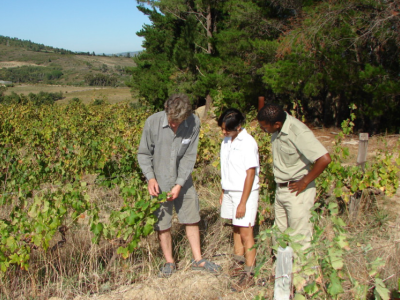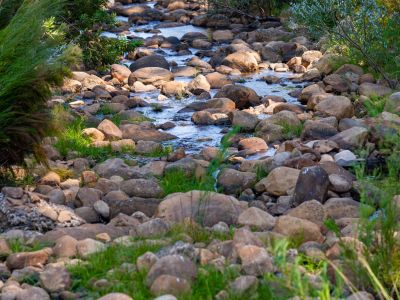About CapeNature
CapeNature is a government entity responsible for managing and maintaining 31 nature reserve complexes comprising 112 nature reserves, of which 106 are terrestrial and six are marine protected areas, totalling 828 506 ha in the Western Cape Province of South Africa. CapeNature offers a variety of eco-tourism products at 25 of its nature reserves.
As custodian of the province’s natural environment, CapeNature is tasked with nature conservation and awareness, preserving biodiversity, and providing facilities for education, research and training.
Through a variety of targeted programmes and projects, CapeNature staff strive to conserve the province’s natural heritage to ensure a sustainable future.
Besides nurturing nature, championing our unique ecosystems (such as the Cape Floristic Region), and educating visitors and local communities about how to protect our natural environment, CapeNature offers memorable, authentic eco-tourism experiences to local and international visitors. These vary from adrenaline-filled pursuits such as bouldering, kloofing and kayaking to more leisurely activities like hiking, fishing and whale watching.
Come and visit one of our pristine reserves or wilderness areas as a day visitor, or linger for longer in one of our campsites or eco-cabins. Join the #LoveNature movement!
Conserve. Explore. Experience.
Who we are

CapeNature is the chief custodian of the Western Cape’s natural environment, and is governed by the Western Cape Nature Conservation Board, known as CapeNature (constituted in terms of the Western Cape Biodiversity Act, No. 6 of 2021).
CapeNature is a Schedule 3C Public Entity and is governed by a Board as established in terms of section 9 of the Western Cape Biodiversity Act, No. 6 of 2021. The Board is appointed by the Provincial Minister for Local Government, Environmental Affairs and Development Planning. The Board comprises of seven non-executive members and is supported by Board Committees to ensure that the mandated oversight role and responsibility is exercised.
The Board is mandated to:
- maintain effective governance of CapeNature;
- ensure that CapeNature properly performs its functions in terms of this Act;
- approve and monitor compliance with the policies and strategies of CapeNature;
- provide strategic direction to CapeNature;
- develop a board charter to provide for a code of conduct for Board members and for meeting procedures, and to regulate matters further relating to corporate governance;
- identify and regularly monitor risk areas and performance in respect of CapeNature; and
- advocate for the sufficient resourcing of CapeNature to perform its functions.
- Must perform its functions subject to any directives issued by the Provincial Minister.
In addition to this statutory oversight, CapeNature relies on the forging of strong partnerships with other role players and stakeholders in the public and private sectors, as well as the communities in the areas in which we operate, to drive a successful and sustainable conservation economy in the Western Cape.
CapeNature in action
As the public entity that promotes and ensures biodiversity conservation in the Western Cape, CapeNature manages complexes made up of 112 nature reserves and wilderness areas, including six Marine Protected Areas (the latter on behalf of the national Department of Forestry, Fisheries and the Environment). These span five distinct areas, stretching from the Winelands and the West Coast to the Cape Karoo, the Overberg and the Garden Route.
Central to these responsibilities is the efficient management of the province’s natural water resources to ensure a sustainable and equitable supply of this precious resource for communities, industry and agriculture.
This includes being the custodian of mountain catchment areas and remote areas – which may not be visible to residents or visitors – that have a direct bearing on the quality of life of millions of people. Fynbos, for example, is not only vital to the area’s biodiversity, but also plays an important role in facilitating rainfall catchment in the province.
For this reason, CapeNature’s duty of care to the ecosystem requires accurate scientific data, a sound understanding of fynbos ecology, and a commitment to the principles of integrated biodiversity management and planning. It also requires the committed buy-in of communities, the public and other players to work together to nurture and protect the Western Cape’s natural assets.
Why conserve nature?
Albert Einstein provided yet more proof of his genius when he mused, “Look deep into nature, and then you will understand everything better.” Nature heals us, inspires us, renews and energises us, and gives us the opportunity to contemplate our place in the universe and be awed by its infinite majesty.
Beneath the philosophical and aesthetic virtues of nature there beats a rational, scientific heart that underscores the importance of our natural environment to the health and future of our planet.
Here are just five reasons why CapeNature’s work is vital to South Africa – and the world:

Biodiversity is crucial to our survival
Biodiverse ecosystems provide us with clean air, food, economic opportunities, medicine, soil for agriculture and recreational enjoyment. Biodiversity is the biological and social capital that supports the entire human race.
The Western Cape is fortunate to be rich in biodiversity – in the Cape Floristic Region alone, there are an estimated 9 500 species, 70% of which are endemic to the area and do not grow anywhere else in the world. This unique natural heritage forms part of a delicate network of interconnected ecosystems that sustain infinite numbers of plant, animal and human life.

Communities are enriched – in more ways than one
Aside from the protected areas that CapeNature manages, we also work with private landowners, communities and farmers outside our reserves to establish conservancies and ensure biodiversity survives in a changing climate – with tangible benefits for all. By embracing conservation-friendly practices, they are able to generate an income through, for example, ecologically sensitive eco-tourism and agricultural produce.
We also empower small businesses by helping them to develop products such as sour fig jam, honeybush tea, aloe powder and buchu water, sustainably using the riches drawn from their natural environment and reducing poverty. Furthermore, we help train young people in natural resource management and play an active role in the social development of our communities.

Providing water naturally – from the source
CapeNature plays a crucial role in ensuring the Western Cape has a sustainable supply of clean, fresh and potable water to support our population and a growing economy. This includes managing a high proportion of the province’s mountain catchments – areas where rainwater is naturally “caught”, collected and channelled to rivers. These catchment areas provide up to 60% of the potable water used in the Western Cape.
We also work to control fires and invasive alien plant species, to protect the ecosystems’ surrounding catchment areas, in partnership with municipalities and other role players.
Nature conservation protects indigenous species
A large number of the Western Cape’s local plant species are endemic to the region – and a number of these are regarded as threatened by the International Union for the Conservation of Nature. CapeNature is therefore solely responsible for the conservation of many of these under-siege plant species, including fynbos.
The Cape Floristic Region (a World Heritage Site) is one of the six floral kingdoms in the world, and has the highest concentration of plant species in the world. However, only 9% of this biome is formally protected, and CapeNature has therefore initiated a number of programmes to prevent fires, manage invasive species, and ensure responsible tourism and urban development.
In addition to protecting the Western Cape’s sensitive plant life and diverse animal species (including the rare and endangered geometric tortoise and Table Mountain ghost frog), CapeNature also plays a central role in policing wildlife crime.
Healthy oceans equal a healthy planet
Healthy marine and coastal ecosystems provide a rich source of food and income for humans, and are integral to the survival of the planet. CapeNature manages six Marine Protected Areas on behalf of the national Department of Forestry, Fisheries and the Environment. These marine reserves – which aim to conserve marine life and promote marine biodiversity – are Robberg, Goukamma, Stilbaai, De Hoop, Betty’s Bay and Rocherpan.
These reserves need to be carefully managed to rebuild overexploited marine life, prevent habitat degradation and control fishing. It is also vital to protect globally threatened species such as sea turtles, and nurture the biodiversity of coastal habitats such as dunes, beaches, coastal fynbos, reefs and estuaries.
